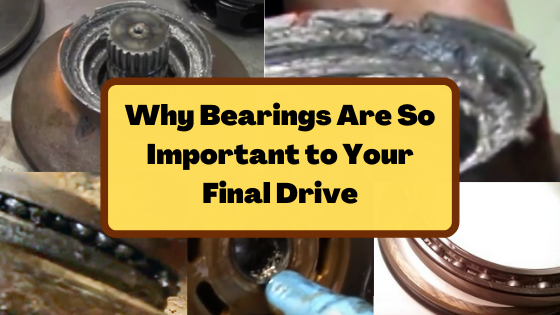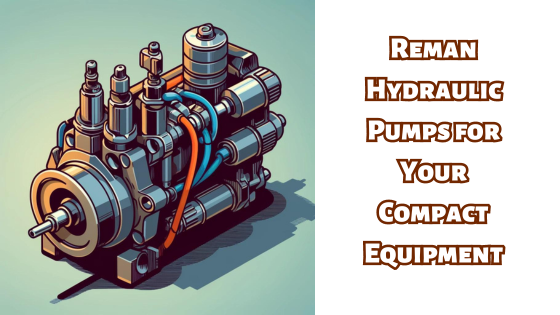Why Bearings Are So Important to Your Final Drive
Posted by Dr. Sara McCaslin on Jan 1st 2021
Your final drive has quite a few bearings in it -- but let one bearing fail and it will start affecting your entire drive motor.
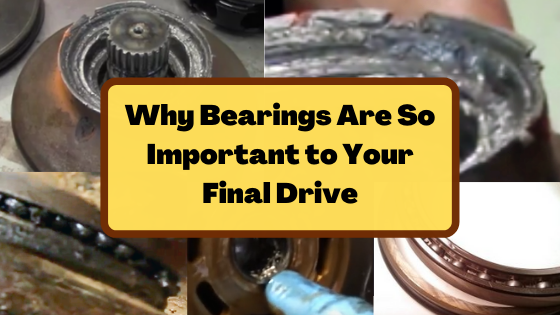
Here are a few other Shop Talk Blog posts you might find helpful ...
Final Drive Motor Bearings
Bearings are vital to the performance and life of your final drive motor -- and the more you know about what they do, the better understanding you'll have of why they are important and how their failure (if ignored) can total your final drive motor.
Purpose of Bearings in a Final Drive
Here are some of the major functions of bearings in a final drive motor …
- Reduce friction
- Maintain position and alignment of shafts and gears
- Reduce wear and tear on other components
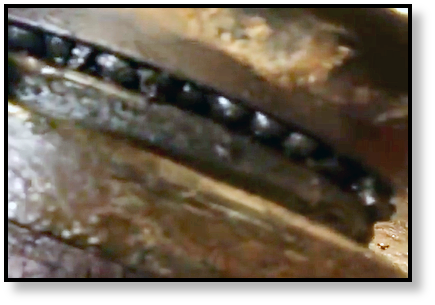
Bearings Reduce Friction
The most important function of bearings is to reduce friction, and in final drive motors we don't want friction. Yes, we need friction for tires and tracks to move machines across the ground, but we don't need friction within in the drive motors. In fact, that's why ball bearings, roller bearings, and needle bearings are referred to as anti-friction bearings. Without anti-friction bearings, you'd have steel on steel rotating and the amount of friction involved would be tremendous. And friction means energy loss, which leads to inefficiencies and losses in power--not to mention the damage that would be involved.
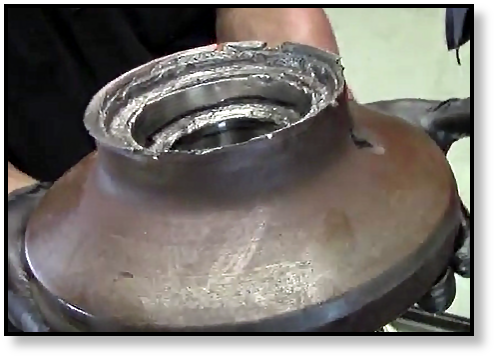
Bearings Maintain Position and Alignment
While the main purpose of bearings is to reduce friction, they also provide support for rotating elements. Axles and gear shafts need some type of support to be able to rotate and do their job, and they need something to keep them in proper alignment. This is provided not only be the anti-friction bearings but also by plane bearings, also referred to as plain bearings, sleeve bearings, journal bearings, or babbit bearings. They all provide support to the shafts and axles so that they stay in place and in alignment to do their job efficiently. They are also lubricated so that the friction involved is minimized.
Bearings Reduce the Wear and Tear on Other Components
Axles and gear shafts in your final drive are supposed to last much longer than your bearings. That's because your bearings are designed to reduce the wear and tear that other key components experience. It's cheaper to replace a bearing than an entire planetary gear set, for example. They are designed to transmit loads and provide support with minimum wear to the components they interact with -- at least when they are properly installed and lubricated.
Why Bearings Fail
Bearings fail, and when they fail prematurely that is a major issue. They are designed to have a certain lifespan after which they will need to be replaced. Considering the loads and wear they experience, this should come as no surprise. In fact, when a bearing fails and is ignored, it can total a final drive motor.
There are certain common reasons why bearings fail prematurely that every final drive motor owner should keep in mind. Let's take a look at three contributors to bearing failures on final drive motors.
Improper Lubrication
The number one cause of premature bearing failure is issues with lubrication. This can include using the wrong type of lubricant, using insufficient lubricant, and trying to use lubricant that has aged. For example, you should never use grease in the planetary hub of a final drive or fail to change out the gear oil to the point that it turns into a sludge. Old gear oil does very little to aid with reducing friction and protecting surfaces. Too little gear oil (often the result of a leaking seal) also puts your bearings at risk.
Contaminated Lubrication
Contamination in the lubricant is also a problem: when a leak develops because of a failed seal, abrasive contaminants like dirt, sand, and grit can make their way into the final drive and result in damage. This will cause damage to key surfaces that the gear oil and hydraulic fluid are supposed to be lubricating and protecting.
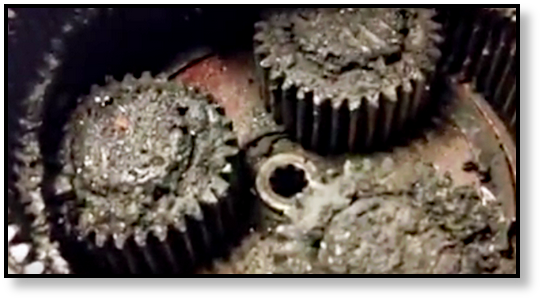
Incorrect Installation
It's also key that your bearings are installed correctly. Factors such as the press fit, preload, and alignment can all have an impact on bearing performance and life. Loose fits, misalignment, poor surface finishes, and out-of-roundness are not good. And if your bearings aren't installed and aligned properly, that means the components they are responsible for aligning and supporting will be off, also.
Signs of Bearing Failure
It's always good to know the basic warning signs that a bearing is about to go out:
- Excessive vibration
- New noises
- Overheating gearbox (if the gearbox steams when water hits it, it’s overheating)
Even if the bearing is not causing these symptoms, it does mean something may be seriously off with your drive motor(s).
Conclusion
The bearings in your final drive are key to its efficient, productive operation. If a bearing fails and is ignored, it can lead to catastrophic damage that may not be something that can be repaired. That's why here at Final Drive Parts we encourage proper lubrication, checking and changing the gear oil on a regular basis, and being aware of the signs that a bearing is about to fail. And if you send in your final drive to us for repair or rebuild, you can rest assured it will come back to your with new bearings.

